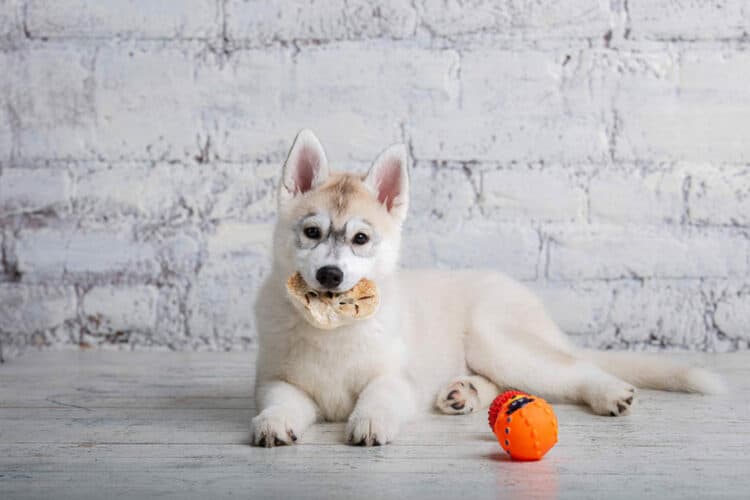Many people give their dogs all kinds of items to satisfy their urge to chew. If your dog doesn’t have something that was specially made for dogs to chew, you might find your books or couch chewed to bits. If you’ve been looking for alternative chews, you might have come across cow ears and wondered if they are safe to give to your dog.
Cow ears are safe for most dogs, but like with anything that your dog chews on, there are a few warnings that you need to be aware of.
Here, we look at how cow ears are made and their benefits, as well as their safety issues.
How Are Cow Ears Made?
Cow ears come from cows, typically cows in the beef industry that have been slaughtered.
The ears start off covered in hair, which is removed. Then, the ears are disinfected — most commonly with sodium hypochlorite (which is essentially liquid bleach), but some manufacturers will use other disinfectant solutions.
The ears are then dried through either a baking or dehydrating process, and finally, they are treated with irradiation to kill off any bacteria.
Cow ears can be white or brown and hard or puffy, depending on the manufacturer and the processing procedures that they use.
The Benefits of Cow Ears
Cow ears have a few advantages, especially compared to other dog chews.
Dental
Cow ears can improve your dog’s dental hygiene. While the dog chews on them, the ears help remove tartar and plaque buildup on the teeth and reduce the chance of periodontal disease.
Nutritional
There are nutritional benefits to cow ears. These depend on the brand of cow ears, but generally, they contain between 66% and 90% protein and 1% to 3% fat. Even better, cow ears are super high in chondroitin!
Cow ears are comprised of a large amount of cartilage, which is what makes them so high in chondroitin. This ingredient aids joint cartilage, which is excellent for dogs with arthritis or dogs that use their joints significantly, such as working dogs.
View this post on Instagram
The Risks of Cow Ears
While there aren’t that many disadvantages to cow ears, there are a few issues that you should take note of.
Calories
Cow ears aren’t tremendously high in calories, but they have calories nonetheless. You need to account for the calories of all your dog’s treats, as you don’t want to over-indulge your pup. Consider only giving cow ears to your dog no more than once or twice a week.
Choking Risk
Cow ears are digestible, but there’s always the chance of the dog choking on them. Your dog will eat small pieces as they go about chewing, but when the last piece is small enough to be swallowed whole, you should remove it. This is even more important for puppies and small breeds, as there’s always the chance that it could become lodged in the throat when swallowed whole.
Beef Allergy
If your dog has a beef allergy, definitely avoid cow ears. Beef protein makes up the total percentage of cow ears.
Size Counts
If you have a small or toy breed, you might want only to give them a small portion. One cow ear is quite large and might be too big for tiny mouths. The same goes for puppies; you should only start giving a cow ear to a puppy when they’re 4 months and older.
Diarrhea
Once in a while, a dog can develop diarrhea, but this is more likely to occur with dogs that haven’t had cow ears before or have them too often.
Choosing the Right Cow Ears
You’ll want to get cow ears that don’t contain any artificial ingredients or preservatives. Look for ones that look like what they are: cow ears. Those that retain their shape haven’t been processed as much and should have most of their nutritional value.
Final Thoughts
The right kinds of cow ears are safe and healthy treats for most dogs. Just remember to break the ears down into smaller sizes for tiny dogs and to take away any pieces large enough to choke them.
It’s always a good idea to monitor your dog while they are chewing on any kind of treat. You want your dog to have a delicious chewing session, but only if they do so safely.
Featured Image Credit: Yelizaveta Tomashevska, Shutterstock














